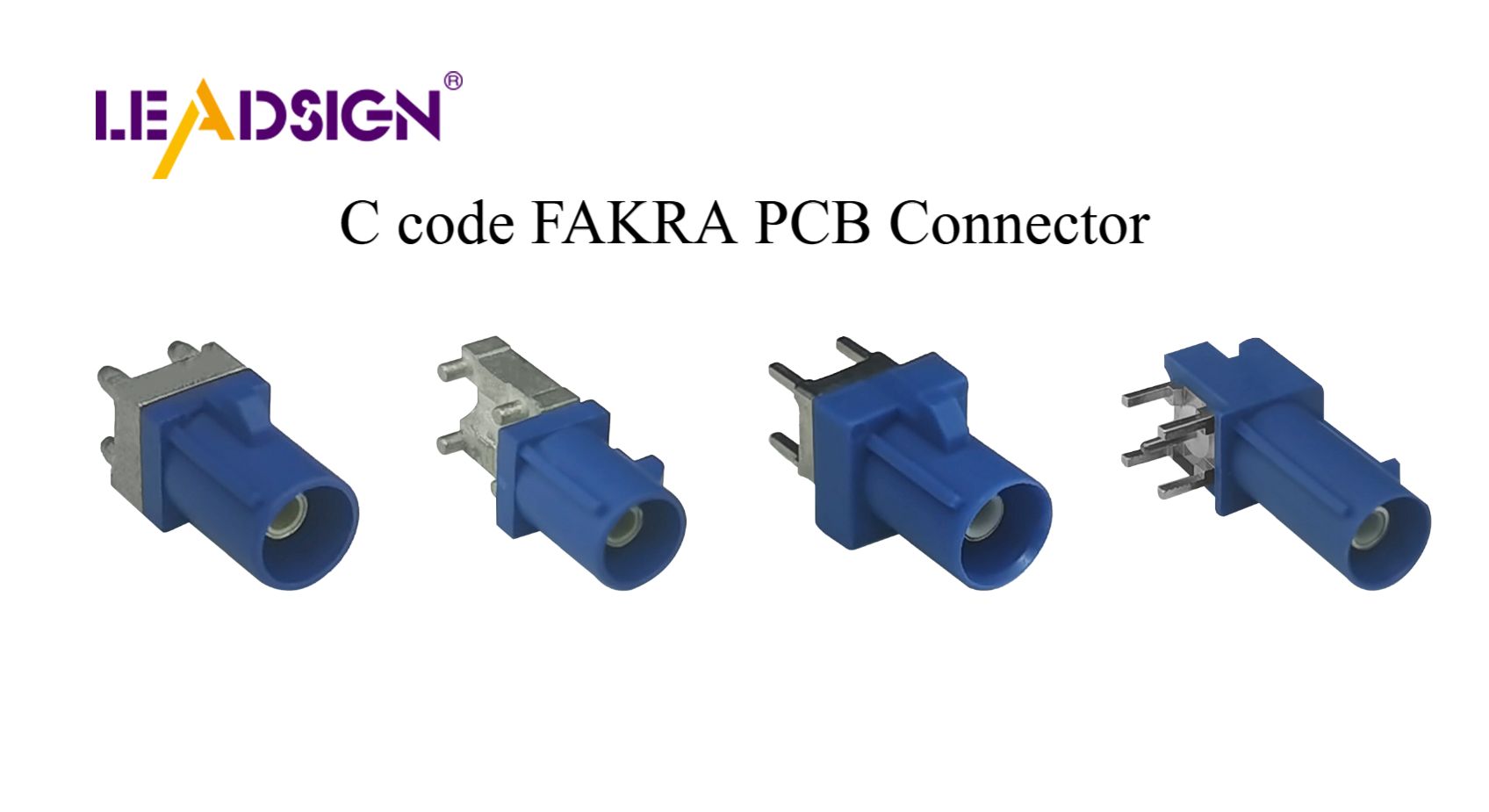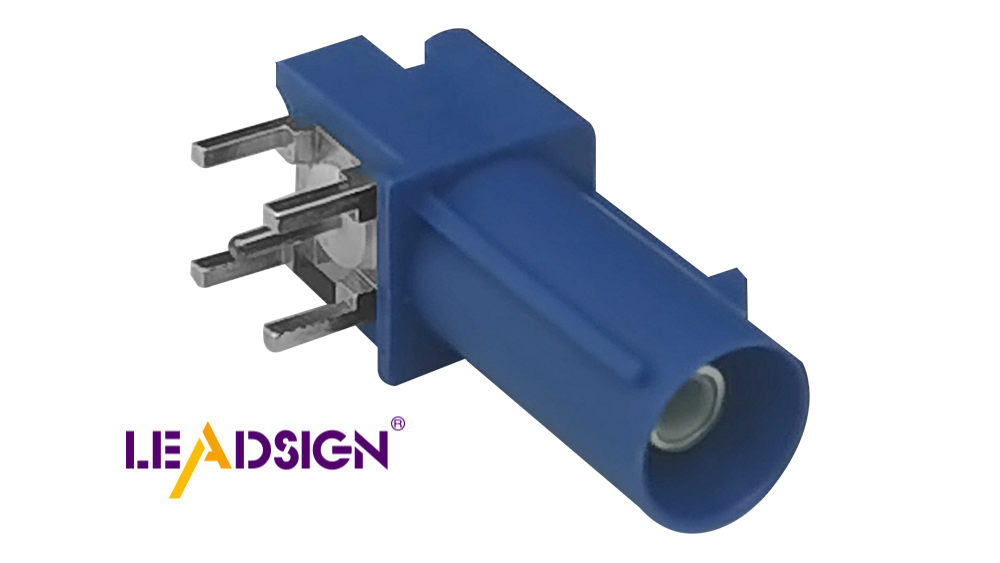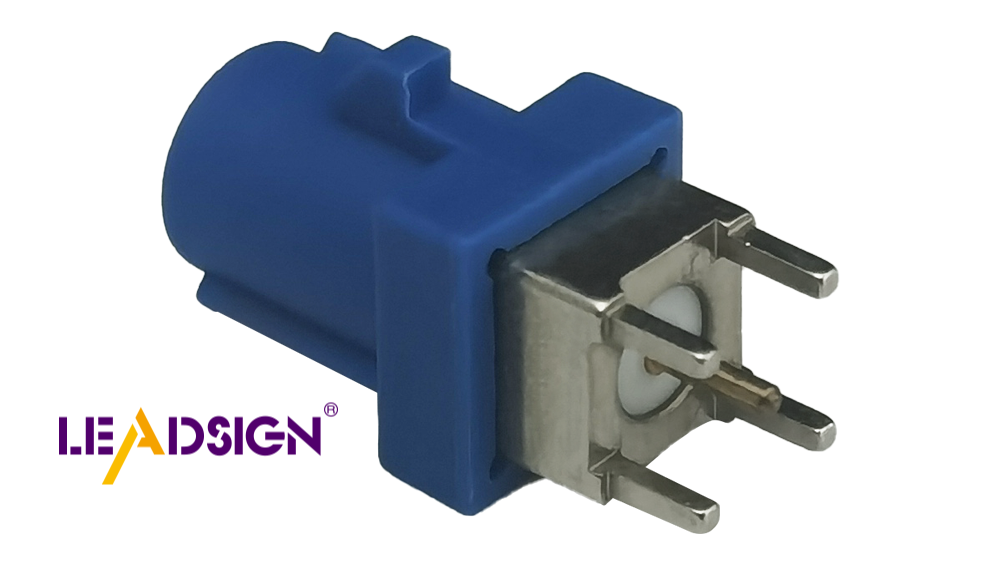Finding the Right Vehicle Connectors for Auto Network Cars

Car connectors are key parts of modern auto network cars. They help electronic parts communicate with each other smoothly. These connectors are crucial for safety and performance, especially in advanced vehicles. Choosing the right ones can be challenging with so many options available. You should consider quality, fit, and functionality. Good choices enhance your car's performance and longevity. The connector market might grow to USD 18.2 billion by 2032, highlighting the importance of these components for future smart cars.
Key Takeaways
Vehicle connectors are essential for smooth communication between car systems, impacting safety and performance.
Different types of connectors serve specific functions; understanding these helps in selecting the right one for your vehicle's needs.
Choose connectors made from strong, durable materials to ensure they withstand harsh conditions and last longer.
Always match connectors to your car's systems and wiring complexity to ensure proper functionality.
Regular maintenance, such as cleaning and checking for damage, can extend the life of your connectors and prevent costly repairs.
Shopping online or at local dealerships can provide access to quality connectors; always check for certifications to ensure reliability.
Investing in high-quality connectors now can save you money on future repairs and enhance your car's overall performance.
Understanding Vehicle Connectors in Auto Network Cars

What Are Vehicle Connectors and Their Functions?
Vehicle connectors are important parts of modern cars. They link systems together for smooth communication and power flow. These connectors send signals and energy, helping car parts work well. From engines to entertainment systems, they keep everything running properly.
Connectors are found in almost every car part. They connect radios, sensors, and safety systems. Without them, your car’s electronics wouldn’t work right. Their strong design makes them reliable in tough conditions like heat or shaking. Whether simple or complex, connectors are key to your car’s performance.
The Role of Connectors in Auto Network Cars
In network cars, connectors are even more important. These cars depend on advanced systems for safety and convenience. Connectors link parts like GPS, Bluetooth, and keyless entry. They make sure data and power flow smoothly for features like traffic updates.
Think of your car’s network as a web of devices. Connectors join these devices, making the web work. They also improve safety by keeping connections secure. For example, good connectors help sensors detect obstacles quickly. This makes network cars smarter and safer.
Overview of Common Connector Types in Auto Networks
Not all connectors are the same in network cars. Different types do different jobs. Knowing them helps you pick the right one. Here are some common types:
Wire-to-Wire Connectors: These link electrical parts and send power and signals.
PCB Connectors: Found in circuit boards, they’re used in systems like navigation.
Circular Connectors: Strong and durable, they work well in tough conditions.
Rectangular Connectors: Compact and dense, they fit in small spaces.
Charging Connectors: Used in electric cars, they help with charging systems.
Each type has special features for certain uses. Circular connectors block dust and water. PCB connectors send data quickly. Picking the right one improves your car’s performance.
A Simple Guide to Choosing the Right Connectors
Picking the right connectors for cars can seem hard. But knowing what to look for makes it easier. This guide will help you choose the best ones for your car.
Types of Connectors and How They Work in Cars
There are different types of connectors, each with a special job. Knowing what they do helps you pick the right one. Here are some common types:
Wire-to-Wire Connectors: These connect parts like lights, engines, and safety systems. They make sure power and signals flow properly.
PCB Connectors: Found in circuit boards, they work in systems like GPS and radios. They send data quickly and reliably.
Circular Connectors: These are strong and resist water and dust. They work well in tough conditions outside the car.
Rectangular Connectors: Small and compact, they fit into tight spaces. They are used in areas with lots of wires.
Charging Connectors: Important for electric cars, they help charge the battery. For example, the SAE J1772-2001 is a common type.
Each type has a specific use. By learning about them, you can find the best one for your car.
Matching Connectors to Your Car’s Needs
Not all connectors fit every car. You need to match them to your car’s systems. First, figure out what your car needs. Does it use GPS, Bluetooth, or keyless entry? If yes, you’ll need connectors that support these features.
Next, check your car’s wiring system. Some cars have simple wiring, while others are more complex. Wire-to-wire connectors work for most cars. But advanced cars may need PCB or circular connectors.
Finally, follow the car maker’s advice. They often suggest which connectors work best. This ensures everything fits and works well.
Checking Network Needs and Future Upgrades
Your car’s network needs affect which connectors you should pick. Modern cars need smooth communication between systems. Choose connectors that meet these needs.
First, check how much power and data your car uses. PCB connectors are great for fast data transfer in systems like GPS. Wire-to-wire connectors handle power-heavy systems well.
Next, think about the environment. Hot, wet, or shaky conditions can damage connectors. Circular connectors are tough and work well in such places.
Lastly, think about future upgrades. As technology changes, your car might need new features. Flexible connectors can adapt to these changes.
By focusing on these points, you can pick the right connectors. This will make your car work better and last longer.
Key Features of the Best Vehicle Connectors

Strong and Long-Lasting Materials for Everyday Use
When picking vehicle connectors, strength is very important. Connectors in cars face tough conditions every day. They deal with heat, shaking, and liquids like oil and water. To handle this, makers use strong materials like plastics and metals that resist rust. These materials help connectors last longer and work well over time.
You should also check if connectors meet safety rules. Rules like RoHS and ELV ensure materials are safe and eco-friendly. Good connectors often have labels proving they can handle harsh conditions. By choosing strong and safe connectors, you avoid replacing them often. This keeps your car’s systems working smoothly.
Easy to Install and Fix for Car Networks
The best connectors work well and are simple to use. You don’t want to spend hours setting them up or fixing problems. Many modern connectors have easy designs, like snap-in parts or color codes. These features make setup quick and simple for anyone.
Fixing connectors is also important. Over time, they might get loose or dirty, causing problems. Picking connectors with tight locks can stop this from happening. For example, double-lock systems keep connectors secure. Cleaning and checking them often can make them last longer. Easy-to-fix connectors save time and keep your car running well.
Reliable Performance in All Conditions
Good connectors should work well in any situation. They need to handle lots of data and power without breaking. Look for connectors with features like matching signals and high-speed data transfer. These help send signals and power efficiently.
Weather also matters. Connectors should work in very hot or cold places. Waterproof and dustproof designs protect them in rough conditions. Connectors with high-use ratings can handle being plugged in and out many times. By focusing on these features, your car’s systems will work their best.
Where to Find the Best Vehicle Connectors
Finding good vehicle connectors doesn’t have to be hard. With some effort, you can find quality options for your car. Here’s a simple guide to help you locate reliable sources.
Searching Online for Connectors
Shopping online is easy and offers many choices. Websites like FindPigtails.com have connectors for different car models. You can compare options, read reviews, and buy from home.
Some online stores sell connectors that meet OEM standards. These keep your car safe and working well. Look for sellers with clear product details, return policies, and helpful support.
“Getting high-quality connectors restores function without big changes, saving money.” – FindPigtails.com
Always check the seller’s reputation when buying online. Look for certifications to ensure the products are real. This helps you avoid fake items and get durable connectors.
Visiting Local Stores or Dealerships
If you like seeing items in person, visit local stores or dealerships. These places often have connectors made for your car model. Experts there can help you pick the right one.
Dealerships sell connectors that match your car’s original parts. They may cost more but ensure quality and fit. Auto parts stores might have cheaper options that still work well.
Check the connectors yourself. Look for strong materials and secure locks. This ensures they will last a long time.
Checking Quality Before Buying
Whether online or in-store, check the quality of connectors. Start by researching the brand. Trusted names like FindPigtails.com often sell reliable products.
Here are tips to check connectors:
Look for Certifications: Labels like RoHS show the connectors are safe and eco-friendly.
Check Materials: Good connectors use strong plastics or metals that resist rust.
Test the Fit: Make sure the connector fits tightly with your car’s system.
Read Reviews: Customer feedback can tell you if the product works well.
By following these tips, you can choose connectors that improve your car. Spending on good connectors now saves money on future repairs.
Troubleshooting and Maintenance for Vehicle Connectors
Vehicle connectors are important for keeping cars working well. But, like other parts, they can have problems over time. Learning to fix and care for them keeps your car reliable.
Finding and Fixing Common Connector Problems
Connectors can cause issues that affect your car’s systems. You might see flickering lights or sensors not working. Sometimes, whole systems may stop working. These problems often come from connector issues.
First, check the connectors closely. Look for dirt, rust, or loose parts. Dirt can block signals, and rust makes connections weak. Clean dirty connectors with a soft brush or special cleaner. For rust, gently remove it with a small tool or rust remover made for electronics.
If the issue isn’t clear, mechanics can help. They use tools to connect to your car and find hidden problems. If you’re unsure, visit a professional for a full check-up.
“Mechanics use external connectors to find hidden car problems.”
Fixing these problems early can stop bigger issues later.
Fixing Loose or Broken Connectors in Cars
Loose or broken connectors can cause big problems in cars. A loose one might cut power or signals sometimes. A broken one can stop a system completely.
To fix a loose connector, unplug it and check its lock. Many connectors have two locks to keep them secure. If the lock is broken, replace the connector. If it’s just loose, push it back firmly into place.
Broken connectors need more care. Cracks or bent pins can ruin the connection. In these cases, replacing the connector is best. Always follow a guide to buy the right replacement. Strong connectors with good locks last longer and work better.
Tips to Keep Connectors Working Longer
Taking care of connectors helps them last longer. Here are some easy tips:
Clean Often: Dust and dirt can build up. Use a soft brush or air to clean them.
Check for Damage: Look for cracks or changes in color. Fix problems early to avoid bigger issues.
Keep Dry: Water can harm connectors. Use waterproof ones or add coatings to protect them.
Lock Securely: Make sure connectors are tightly in place. Loose ones can cause power or signal problems.
Plan for Updates: New car features may need different connectors. Choose ones that can handle future changes.
By following these steps, you can avoid frequent fixes. This keeps your car running well and saves money over time.
Picking the right car connectors is very important. They help your car’s systems work properly. Look for connectors that fit well, last long, and are easy to use. A helpful guide can explain these points clearly. Always check what your car needs and think about future changes. By doing this, you can choose connectors that improve how your car works. Spending on good connectors now will save you trouble and money later.
FAQ
What do automotive connectors do in cars?
Automotive connectors are like bridges for your car’s electronics. They help parts talk to each other by sending signals, power, and data. Without them, systems like lights, safety features, and radios wouldn’t work.
Where are automotive connectors used in cars?
You can find connectors in almost every car part. They’re in engines, GPS, radios, and airbags. Their tough design helps them work well in heat or shaking.
How has electrification changed the need for connectors?
Electric cars need more and better connectors. As cars use more electronics, connectors keep them safe and efficient. The demand for strong and secure connectors has grown a lot.
What types of connectors are used in cars?
Cars use different connectors for different jobs. Common ones include:
Wire-to-Wire Connectors: Link electrical parts together.
PCB Connectors: Found in circuit boards for systems like GPS.
Circular Connectors: Strong and handle tough conditions.
Rectangular Connectors: Small and save space.
Charging Connectors: Used for electric car charging.
Each type has a special job to keep systems running.
How do connectors make cars work better?
Connectors send signals and power to car systems. They help things like lights, engines, and radios work well. Strong connections improve safety and performance.
Why is durability important for connectors?
Durable connectors last longer in tough car conditions. They handle heat, water, and shaking. Strong materials and good locks make them reliable.
Can I upgrade my car’s connectors?
Yes, better connectors can improve your car. If you add new features like better radios or safety tools, choose connectors that fit your car and future needs.
How do I pick the right connector?
First, know what your car needs. Think about systems like GPS or Bluetooth. Make sure the connector fits your car’s wiring. Pick durable and safe connectors.
Where can I buy good connectors?
You can shop online or at local stores. Online sites show details and reviews. Stores let you see the connectors yourself. Always check for safety labels to ensure quality.
How do I take care of my connectors?
Clean connectors often to remove dirt. Check for cracks or rust. Use waterproof ones to avoid water damage. Lock them tightly to stop loose connections.
“Caring for connectors helps them last longer and keeps your car working well.”
See Also
Maximizing Automotive Data Flow With Superior Connectors
Boosting Data Transfer: Significance of Fast Automotive Connectors
Why Fakra Connectors Are Essential for Today's Vehicles
Understanding the Advantages of Fakra Connectors in Cars
Transforming Vehicle Connections: Benefits of HFM Connectors

